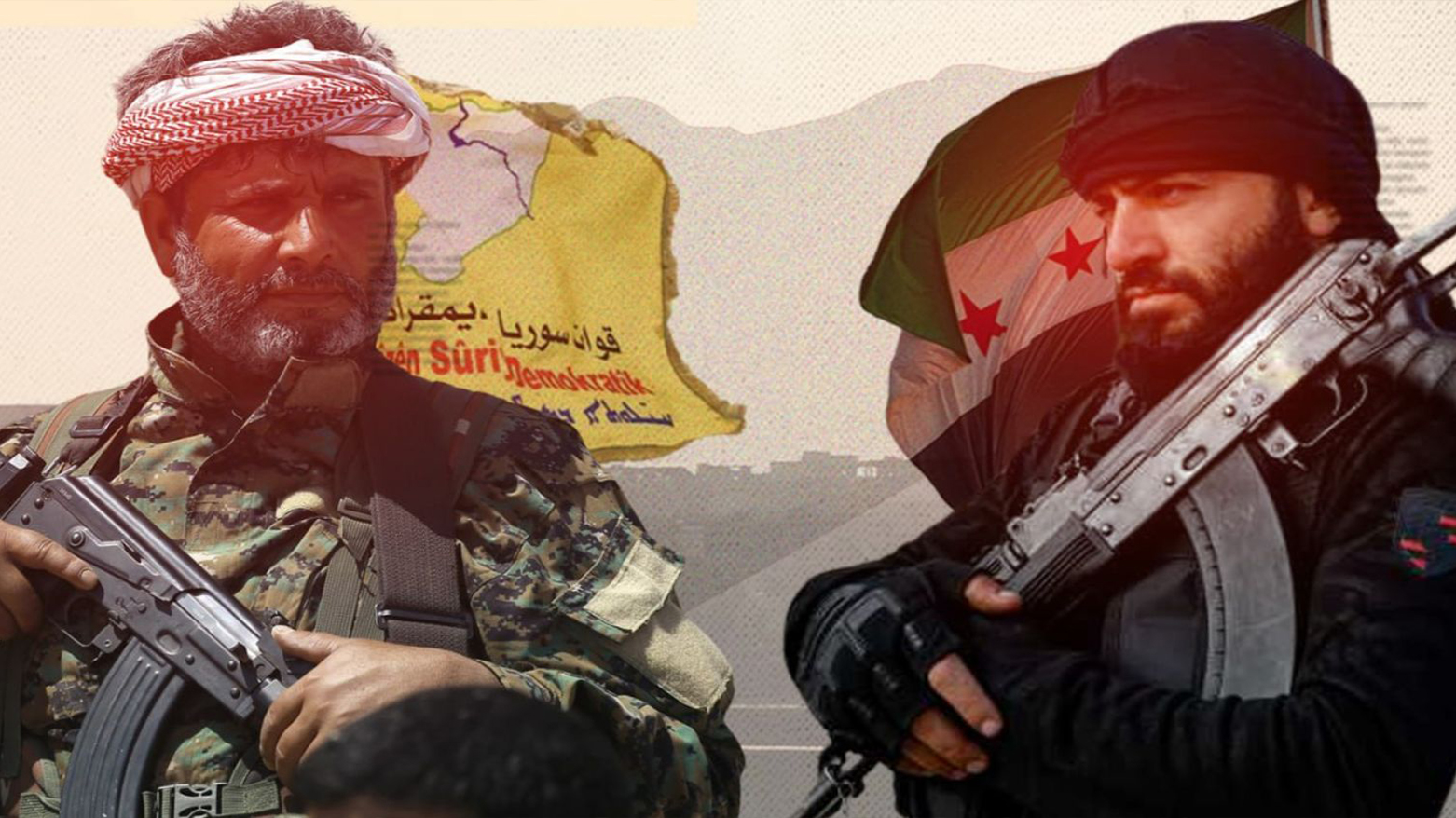Syria Threatens Offensive on Eastern Provinces If SDF Fail to Cooperate
The National say that Damascus has mobilized 50,000 troops near Palmyra, threatening to seize SDF-held areas by October unless the U.S.-backed force surrenders control. The planned offensive, supported by Turkey, risks reigniting conflict across Raqqa and Deir Ezzor.

ERBIL (Kurdistan24) – Tensions are rapidly escalating in Syria as Damascus prepares for a sweeping military offensive against the Syrian Democratic Forces (SDF), threatening to recapture vast territories east of the Euphrates by October. Backed by Turkish support and regional maneuvering, the looming campaign risks plunging Raqqa, Deir Ezzor, and neighboring areas into renewed bloodshed.
According to The National, citing Syrian security sources, the government has assembled an estimated 50,000 troops near Palmyra with orders to advance north and seize Raqqa and Deir Ez-zor unless the SDF relinquishes control.
The offensive would draw upon Arab tribal populations along the Euphrates for local support. Staging grounds are already being prepared in Rasafah, between Palmyra and Raqqa, and in Sukhnah, linking Palmyra with Deir Ezzor. Syrian National Army (SNA) units—rebranded under the “new Syrian army”—are also expected to strike SDF positions near the Tishreen Dam east of the Euphrates.
A senior Syrian official, speaking to The National, on condition of anonymity, cautioned that the campaign will not move forward “without an American green light.” The source further noted that Damascus must ensure Israel’s non-intervention, recalling last month’s Israeli airstrike on Damascus, which repelled a government offensive in Sweida.
On Aug. 12, the Syrian Democratic Forces accused Damascus-backed groups of mounting provocations in recent days, including attempted advances near Deir Hafer and the deployment of fighters into Sheikh Maqsoud and Ashrafieh. Reconnaissance drones have circled over the neighborhoods, with one reportedly crashing and exploding.
“If these attacks persist, we will, as a legitimate right, be compelled to defend ourselves and respond,” the SDF declared in a statement, warning that such actions jeopardize the ceasefire agreement reached last April with the Syrian government.
The group called on Damascus to halt provocations and safeguard civil peace in Aleppo and other contested areas.
Türkiye has openly confirmed its military backing of the new Syrian government. In a briefing on July 23, the Turkish Ministry of National Defense stated that Damascus had formally requested assistance to enhance its defense capacity.
“The Syrian administration has requested official support from Türkiye within the scope of strengthening its defense capacity and combating all terrorist organizations, especially ISIS,” the ministry said.
Ankara reiterated its demand that the SDF, “concretely demonstrate” compliance with a March 10 agreement reached with Damascus. “Protecting Syria’s territorial integrity and sovereign rights is essential,” Turkish officials stressed, warning that developments will be closely monitored.
Sihanouk Dibo, an SDF representative, flatly rejected the proposals on July 28. “Laying down arms by the SDF is an issue that is not up for any discussion,” he stated.
He clarified that the SDF seeks to transform into part of a restructured Syrian national army rather than dissolve. “We are pursuing a political solution that guarantees constitutional rights and political participation,” Dibo said, emphasizing that any integration must be gradual.
Despite rejecting U.S. demands, Dibo underscored that relations with Washington remain stable: “There is no conflict with America, and there is good coordination between America and the SDF.” He added that the SDF would consider participating in future parliamentary elections if a broader agreement is reached.
Kurdistan Region Prime Minister Masrour Barzani, speaking to Al Arabiya earlier this year, underlined the need for inclusive dialogue.
“The Syrian Democratic Forces represent a portion of Kurds, not all Kurds,” Barzani said, stressing that Damascus must engage all Kurdish political movements, not solely the SDF.
The developments come in the wake of former Syrian president Bashar al-Assad’s ouster in December by Hayat Tahrir al-Sham (HTS), an al-Qaeda offshoot now dominating the Syrian state. The transitional government under Ahmed al-Sharaa has struggled to unify Syria’s fractured armed factions.
Despite efforts on paper to consolidate forces, battles rage across northern Syria (Western Kurdistan). On Jan. 31, 2025, At least 26 fighters were killed or injured within 24 hours during clashes between the SDF and the Turkish-backed SNA.
According to the Syrian Observatory for Human Rights (SOHR), SDF drone strikes near Manbij killed five SNA fighters, while Turkish drones retaliated with four strikes near Deir Hafer, killing one SDF member and a civilian. Eight more SNA fighters were later killed in further SDF attacks.
In Qara Qozak, southern Kobani, SDF special units staged a revenge assault on a Turkish base in response to the Sarin Massacre, destroying vehicles and causing casualties.
Since the renewed escalation on Dec. 12, 2024, SOHR has recorded 543 deaths, including 54 civilians, 411 Turkish-backed fighters, and 78 SDF members, among them a commander.
As Damascus signals readiness for a decisive assault, the SDF’s vow of resistance, Ankara’s direct involvement, and Washington’s contested demands underscore the fragile and volatile state of Syria’s conflict.
What is framed as a battle over territorial control increasingly reveals itself as a sectarian tension, struggle over sovereignty, Kurdish rights, and the very future of Syria’s political order.
